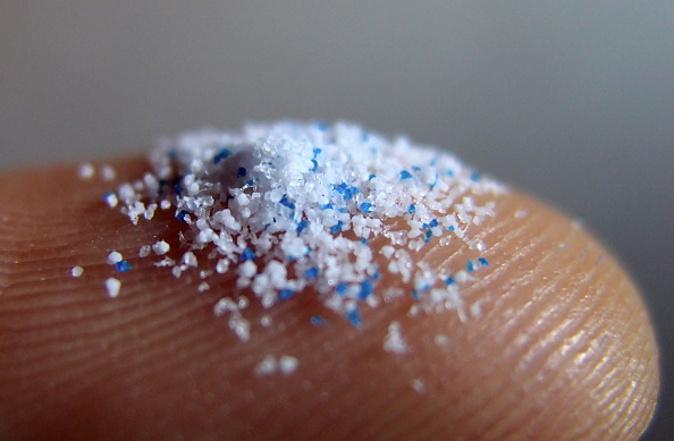Microplastics, or microbeads, are small plastic particles generally defined as being smaller than 5mm and originating from the disintegration of larger plastic. The particles are also used as ingredients in industrial processes, such as in the creation of shampoo.
The harm microplastics have wrought upon the marine environment is well-known, but a new report suggests the plastics could also be contaminating the air we breathe.
Frank Kelly, an environmental health professor, introduced a report to the House of Commons Environmental Audit Committee (EAC) in the U.K. on May 24.
“When you [farmers] spread slurry on fields, it dries out,” Kelly said. “You end up having microplastics lying on the surface of the field.”
Kelly said it’s possible these particles are then brought into the air and we end up breathing them.
“The particles are of a size that they are [breathable],” Kelly added. “They are increasing in number in our environment and there is a question to be asked.”
The particles can bring considerable harm to the human respiratory system, said Kelly. Inhaling them can draw harmful chemicals into the lower part of the lungs as well as in the body’s circulation, a consequence comparable to vehicle emissions.
Plastics also contain chemicals known to interfere with human hormones. In addition, they are known for being “magnets” that attract other harmful chemicals.
In the marine environment, the plastic pieces are often able to bypass water treatment plants due to their small size. When they then enter bodies of water, they are often consumed by fish, birds, and other aquatic organisms. Since the plastics often contain dangerous chemicals that seep into the animal, this poses not only a problem for the animals, but for the humans higher up the food chain that consume the seafood.
Some Are Skeptical
Not everyone is ready to accept that we’re breathing plastics just yet. Some members of the committee were taken aback by the idea, The Independent reported.
“This sounds like a very serious issue,” committee member Rebecca Pow said. “We’re not laughing about it, we’re laughing hysterically.”
Dr. Erik van Sebille, of the Grantham Institute for Climate Change at Imperial College London, told the committee that plastic was a “fantastic material and we really wouldn’t want a society without plastic any more.”
He did add that plastic waste should probably be curtailed in order to reduce contamination of the natural environment.
Further studies are pending, regarding whether the plastic pieces are in the air, but the general public is already opposed to usage of the particles in manufacturing.
In 2015, U.S. president Barack Obama signed a bill that banned the use of microbeads in cosmetics.
A poll in the U.K. earlier this year also showed that two-thirds of the British public wished to follow suit and ban microbeads.





